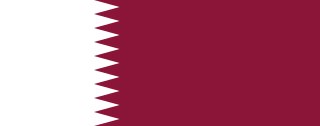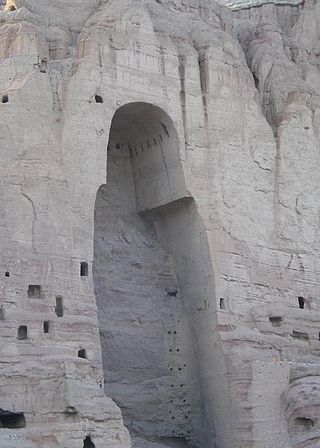Related Research Articles

Lebanon, officially the Republic of Lebanon, is a country in the Levant region of West Asia, bordered by Syria to the north and east, Israel to the south, and the Mediterranean Sea to the west; Cyprus lies a short distance from the country's coastline. It is at the crossroads of the Mediterranean Basin and the Arabian Peninsula. Lebanon has a population of more than five million and an area of 10,452 square kilometres (4,036 sq mi). Beirut is the country's capital and largest city.

The economy of Lebanon has been experiencing a large-scale multi-dimensional crisis since 2019, including a banking collapse, the Lebanese liquidity crisis and a sovereign default. It is classified as a developing, lower-middle-income economy. The nominal GDP was estimated at $19 billion in 2020, with a per capita GDP amounting to $2,500. In 2018 government spending amounted to $15.9 billion, or 83% of GDP.

West Asia, also called Western Asia or Southwest Asia, is the westernmost region of Asia. As defined by most academics, UN bodies and other institutions, the subregion consists of Anatolia, the Arabian Peninsula, Iran, Mesopotamia, the Armenian highlands, the Levant, the island of Cyprus, the Sinai Peninsula and the South Caucasus. The region is separated from Africa by the Isthmus of Suez in Egypt, and separated from Europe by the waterways of the Turkish Straits and the watershed of the Greater Caucasus. Central Asia lies to its northeast, while South Asia lies to its east. Twelve seas surround the region (clockwise): the Aegean Sea, the Sea of Marmara, the Black Sea, the Caspian Sea, the Persian Gulf, the Gulf of Oman, the Arabian Sea, the Gulf of Aden, the Red Sea, the Gulf of Aqaba, the Gulf of Suez, and the Mediterranean Sea. West Asia contains the majority of the similarly defined Middle East. The Middle East is a political term that has changed many times depending on political and historical context while West Asia is a geographical term with more consistency. It excludes most of Egypt and the northwestern part of Turkey, and includes the southern part of the Caucasus.

The Lebanon national football team, controlled by the Lebanese Football Association (LFA), have represented Lebanon in association football since their inception in 1933. The squad is governed by the Asian Football Confederation (AFC) continentally, and FIFA worldwide. While Lebanon have yet to qualify for the FIFA World Cup, they have qualified three times to the AFC Asian Cup: they first participated in 2000, when they hosted the event. Lebanon's main venue is the Camille Chamoun Sports City Stadium in Beirut; however they also play in other locations such as the Saida Municipal Stadium in Sidon.

The Middle East and North Africa (MENA), also referred to as West Asia and North Africa (WANA) or South West Asia and North Africa (SWANA), is a geographic region which comprises the Middle East and North Africa together. However, it is widely considered to be a more defined and apolitical alternative to the concept of the Greater Middle East, which comprises the bulk of the Muslim world. The region has no standardized definition and groupings may vary, but the term typically includes countries like Algeria, Bahrain, Egypt, Jordan, Kuwait, Lebanon, Libya, Morocco, Oman, Qatar, Saudi Arabia, Syria, Tunisia, the UAE, and Yemen.

Lebanese diaspora refers to Lebanese migrants and their descendants who emigrated from Lebanon and now reside in other countries. There are more people of Lebanese origin living outside Lebanon than within the country. The diaspora population consists of Christians, Muslims, Druze, and Jews. The Christians trace their origin to several waves of emigration, starting with the exodus that followed the 1860 Lebanon conflict in Ottoman empire.
The FIFA Arab Cup, or Arab Cup, is an international association football competition organized by FIFA. It is held every four years with the participation of senior men's national teams of the Union of Arab Football Associations (UAFA), the governing body for countries in the Arab world. The current champion is Algeria, which won its first title at the 2021 tournament in Qatar.

Middle Eastern cinema collectively refers to the film industries of West Asia and part of North Africa. By definition, it encompasses the film industries of Egypt, Iran, Bahrain, Iraq, Jordan, Kuwait, Lebanon, Palestine, Oman, Qatar, Saudi Arabia, Syria, United Arab Emirates, and Yemen. As such, the film industries of these countries are also part of the cinema of Asia, or in the case of Egypt, Africa.
Armenians in the Middle East are mostly concentrated in Iran, Lebanon, Cyprus, Syria, Jordan, Saudi Arabia and Jerusalem, although well-established communities exist in Iraq, Egypt, Turkey and other countries of the area including, of course, Armenia itself. They tend to speak the Western dialect of the Armenian language and the majority are adherents of the Armenian Apostolic Church, with smaller Catholic and Protestant minorities. There is a sizable Armenian population in the thousands in Israel. There is also the Armenian Quarter in Jerusalem with a history that goes back 2,000 years.

Qatar, officially the State of Qatar, is a country in West Asia. It occupies the Qatar Peninsula on the northeastern coast of the Arabian Peninsula in the Middle East; it shares its sole land border with Saudi Arabia to the south, with the rest of its territory surrounded by the Persian Gulf. The Gulf of Bahrain, an inlet of the Persian Gulf, separates Qatar from nearby Bahrain. The capital is Doha, home to over 80% of the country's inhabitants. Most of the land area is made up of flat, low-lying desert.

Syrians are the majority inhabitants of Syria, indigenous to the Levant, who have Arabic, especially its Levantine dialect, as a mother tongue. The cultural and linguistic heritage of the Syrian people is a blend of both indigenous elements and the foreign cultures that have come to rule the land and its people over the course of thousands of years. By the seventh century, most of the inhabitants of the Levant spoke Aramaic. In the centuries after the Muslim conquest of the Levant in 634, Arabic became the dominant language, but a minority of Syrians retained Aramaic (Syriac), which is still spoken in its Eastern and Western dialects.
The Arab Cup 2009 was planned to be the ninth staging of the Arab Cup, an association football tournament held between Arab countries by UAFA. The first stage of qualifying began in December 2006, but no further rounds were played and the tournament was cancelled due to lack of sponsorship.

Buddhism has been present in the Middle East and influenced some Middle Eastern religions such as Manichaeism. Buddhism, per some estimates by early medieval Muslim scholars such as Al-Biruni, was present from Eastern ancient Persia up to the frontier of Syria before the advent of Islam.

Sheikh Hamad bin Jassim bin Jaber bin Mohammed bin Thani Al Thani, who was also known informally by his initials HBJ, is a Qatari politician. He was the Prime Minister of Qatar from 3 April 2007 to 26 June 2013, and foreign minister from 11 January 1992 to 26 June 2013.
Ethnic Armenians in Qatar number between 800 and 1,500 and live mainly in the capital Doha. Unofficial sources place them at around 5,500.

This is a list of the Lebanon national football team results from 2010 to 2019.

Onaiza is a north-eastern district of Doha, Qatar. It is located between Al Dafna, Qatar's emerging central business district, and Lusail, a development north of Doha which is set to hold 200,000 residents in the near future.
This article provides details of international football games played by the Qatar national football team from 2000 to 2019.

The 2019 AFC Asian Cup was the 17th edition of the men's AFC Asian Cup, the quadrennial international football championship of Asia organised by the Asian Football Confederation (AFC). It was held in the United Arab Emirates from 5 January to 1 February 2019.

The 2015 Zabadani ceasefire agreement between Syrian opposition forces and the Syrian Armed Forces was achieved on 24 September 2015, with mediation from the United Nations, following the Battle of Zabadani (2015). The agreement was fulfilled in April 2017.
References
- 1 2 "Qatar's population by nationality". bq magazine. 7 December 2014. Archived from the original on 22 December 2013.